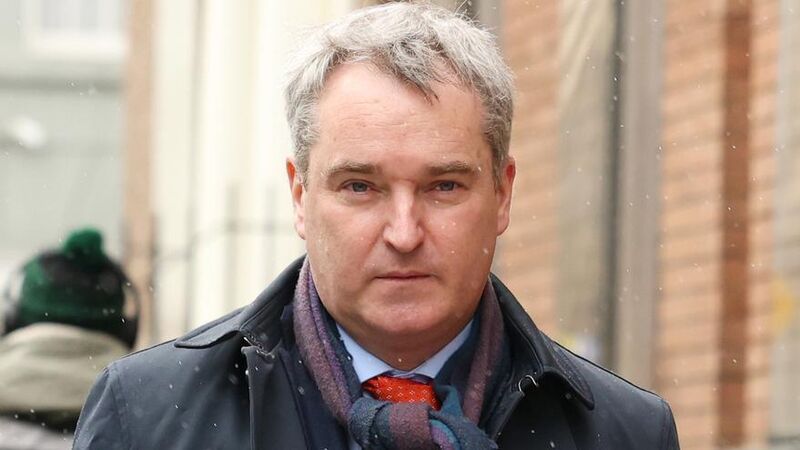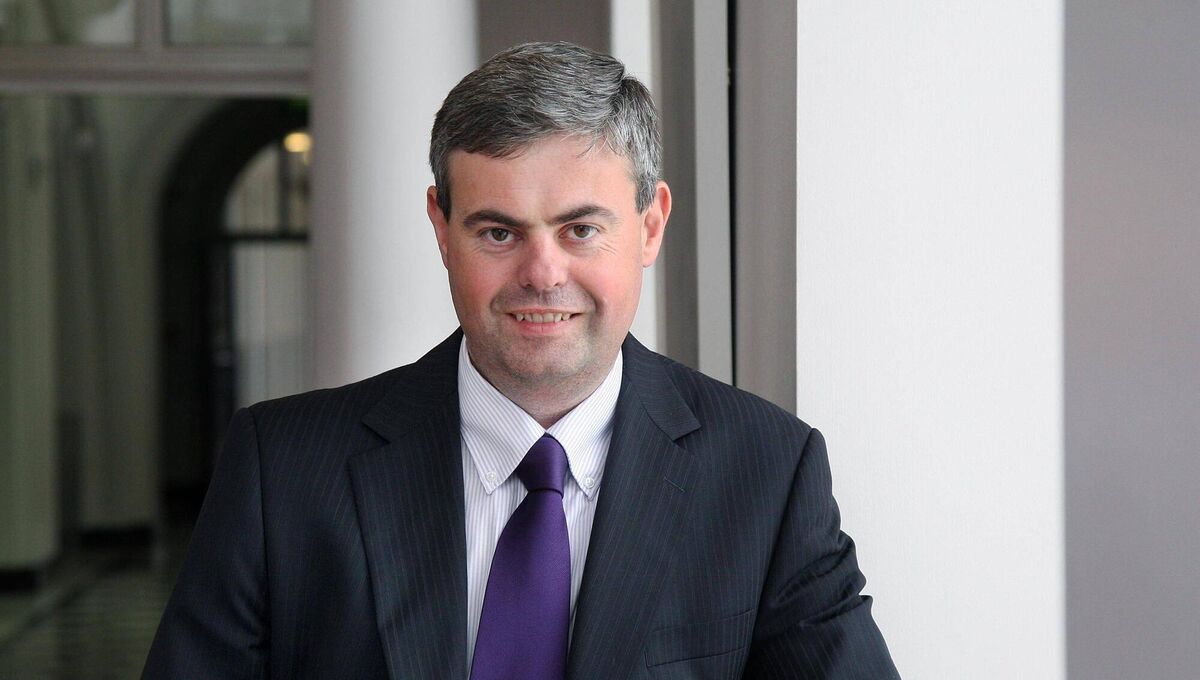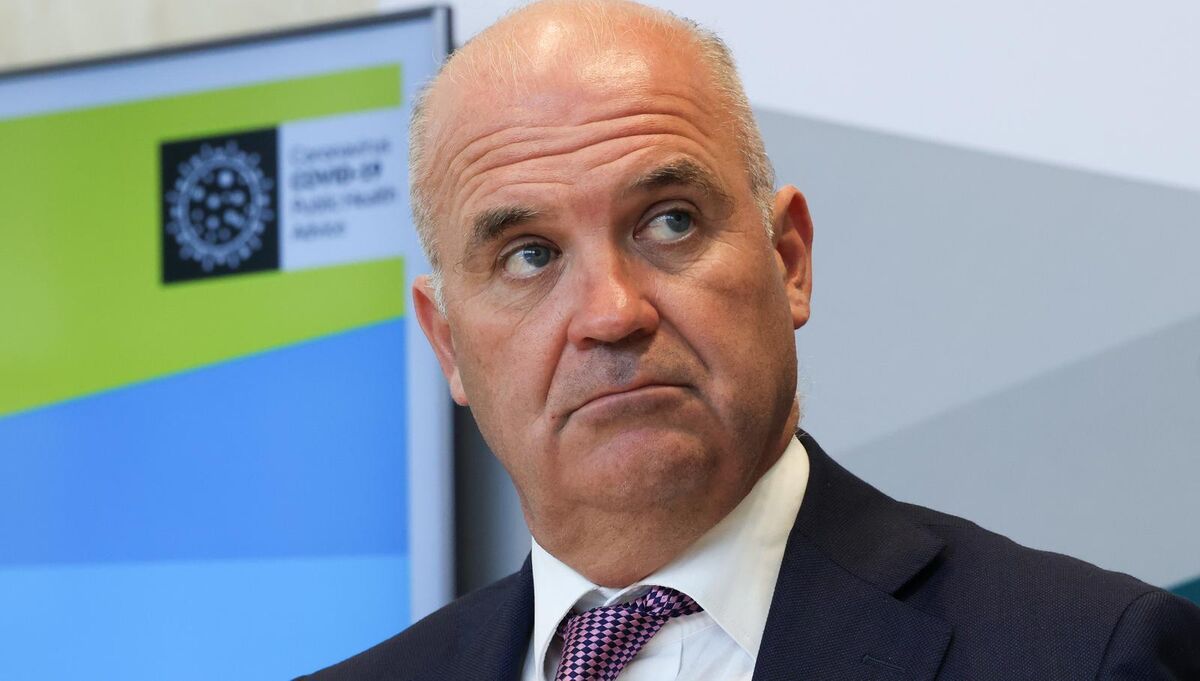Memo on Holohan's move to Trinity does little to clear up confusion

Secretary general at the Department of Health Robert Watt. Picture: Sam Boal / RollingNews.ie
THE 12-page memo from Robert Watt defending his role in the botched secondment arrangement of Tony Holohan to Trinity College Dublin (TCD) fails in its chief objective to vindicate his actions.
While he insists the powers of the Public Service Management Act 1997 stipulate that the administration of government departments is a matter for secretaries-general and he was within his rights to do what he did, his own political masters are not so sure.
His memo clearly sets out an elaborate plan to move Dr Holohan, the chief medical officer (CMO), “on his existing terms and conditions” to a plum professorship post in Ireland’s premier university, and all the while his minister was in the dark.
"In seeking to take up this post, Dr Holohan simply desired to preserve his existing terms and conditions and it was felt that this could be best initially achieved by means of a secondment which would be in line with the principles of the guidelines on secondment in the civil service,” Mr Watt states in his memo.
Watt insists he told his minister, Stephen Donnelly, what was appropriate to know, in line with his delegated powers, but confirms he only told him at the last minute and adds that the minister was “not informed about the precise details of the secondment arrangement”.
He says that on foot on conversations with the secretary general to the Government, Martin Fraser, he “understood the fact of discussions regarding the CMO’s future plans were known in the Department of An Taoiseach”.

He goes on to say that he was asked by Mr Fraser in early March as to whether he was “working on the details” of the Holohan package, saying that he “inferred from this that this had political support in Government Buildings”.
Mr Watt also assumed that “key decision-makers”, as he calls them, were aware of the proposal, but again “not the precise details” and even reveals that Mr Fraser, as his main go-between, was also not aware of the precise details.
Mr Watt deftly sought to dump the issue on the outgoing secretary-general of the Government, who is soon to depart to become Ireland’s ambassador to London.
In his note, Mr Watt seeks to claim that despite having advanced this extraordinary arrangement for the CMO, that the actual appointment to TCD “is not a matter for the department”.
- This is despite the fact that the detail on how the appointment could be progressed was discussed between Dr Holohan and Trinity College and a proposal for a secondment arrangement was identified by Dr Holohan as his preferred approach. On February 25, the CMO formally sought support for a secondment to TCD;
- This is despite the Department of Health approaching Trinity about the position;
- This is despite the department making it clear that it will sort the funding of the post as Trinity made it clear, according to Mr Watt himself, that they were not in a position to fund such a new position;
- And crucially, this is despite Mr Watt himself, in a letter to provost Linda Doyle, committing annual funding of €2m for the duration of the professorship.
In his letter to Ms Doyle on March 16, nine days before the public announcement was made, Mr Watt set out the offer of funding clearly. To add firepower to his offer, he suggested it be agreed the Department of Health would make a ringfenced allocation of €2m a year for the duration of Dr Holohan’s secondment to his retirement.
We know now that that offer was not made with the knowledge of, or consent from, the head of government.
Taoiseach Micheál Martin has now said that he was unaware that Trinity was offered a €2m ringfenced funding arrangement as part of the secondment.
Importantly, Mr Watt also insisted on strict confidentiality on the matter from Ms Doyle.
In his letter, he said the money would be administered through the Health Research Board, which this week said it had no knowledge of such arrangement. Also, in his own memo, Mr Watt concedes that the arrangements for how Dr Holohan was to be paid were not finalised.
On March 25, the department announced Dr Holohan was to take up the position in Trinity, but did not disclose that it would be a secondment.
Furthermore, Mr Watt appears to contradict himself in his memorandum on the funding of Dr Holohan’s salary.

He first of all states: “It was never envisaged that this salary would be paid directly on the vote of the Department of Health.”
But later in the document, it concedes the finer details were not worked out. Mr Watt states that “in order to ensure agreement in principle, it was incumbent on the department to underwrite the proposal”.
“Any funding of the research by the department would have to form part of the normal estimates process in due course,” he says.
Well, which is it? The department was or was not going to pay for Dr Holohan? It can’t be both.
Taking all the matters into the round, it is simply not credible in the least to suggest such a version of events should be taken seriously.
It is not credible that he would rely on inference and assumption from on high that this deal was approved, when clearly it had not been.
It is simply not credible that Mr Watt would seek to rely on the defence of the 1997 act to defend what many have seen as an example of civil service overreaching.
The further review of Dr Holohan’s abandoned secondment is “good governance”, Finance Minister Paschal Donohoe said.
He was speaking after Mr Donnelly called for a further independent review into the matter.
“I think it’s good governance,” said Mr Donohoe.
“The Government will shortly receive a full briefing in relation to that development for the Government’s also to perform an assessment of what happened or what could have done been done better or differently in the future.
“We’re actually trying to do the opposite [of lack of transparency]. We acknowledge this could have been done better.
"We’d all acknowledge at this point that that particular statement could have been fuller, could have been handled better.”
Rather than killing off the affair, Mr Watt’s self-serving memo does little to quell the anger and frustration around his increasingly divisive manner of doing business.
Mr Watt’s offer of €2m per anum in research funding is now likely to be the main area of focus, given the Taoiseach has made clear he was not aware of it.
What should have been a laudable and progressive move has descended into quite the grubby and unseemly episode.
The review is appropriate, but so is accountability. The jaded public, whose patience has been tested, need to see that too.












